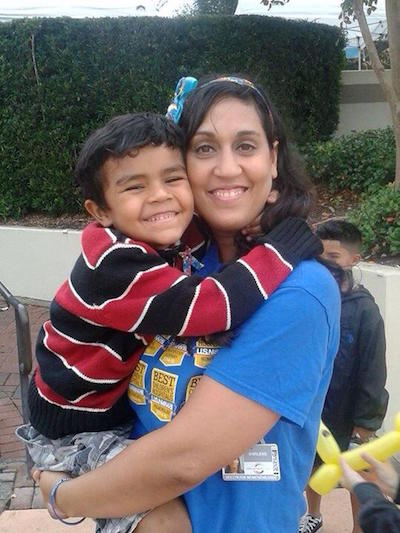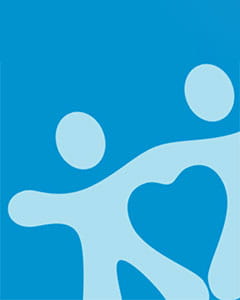Hearing the “A” word: autism
At seven years old, Marcello loves to cuddle, is a technological whiz, and is affectionately referred to as “boss man” by his mother, Shirliene. His teachers even think he’ll be a teacher himself someday because he loves telling people what to do. Shirliene smiles broadly whenever she talks about him, even when it’s to relay a story about him fighting with his older brother, Julian. Or, maybe it would be more appropriate to say that she smiles especially when she relays stories like that. Just a few short years ago, Shirliene didn’t think she would ever be able to hug her son, let alone watch him roughhouse with his 9-year old brother.
“It was almost like, when I touched him, it hurt,” she recounts. “He wouldn’t make eye contact, didn’t like to be touched, and didn’t interact at all with others.” Marcello also rarely cried as a baby, and skipped developmental milestones, such as walking without crawling.
“He started walking at 10 months, and I thought that was a good thing. I thought I had a super baby,” Shirliene says with a laugh. But as her son grew older, he demonstrated an increasing number of behavior patterns that sent up red flags, such as flapping his hands and lining up his toys, as well as spinning in circles, falling, and then getting up to spin again. He also developed severe eczema, causing him to scratch his own skin until it bled. Shirliene took him to three different doctors, all to no avail.
In May 2010, Shirliene decided to make an appointment with The Developmental Center for Infants & Children/Early Steps, an early intervention program that sees children from birth to age three who have or who are at risk for any kind of developmental delay or disability. It is one of six programs offered at The Howard Phillips Center for Children & Families, part of Arnold Palmer Hospital for Children.
After receiving an in-home consultation with a Developmental Center Family Care Coordinator, Shirliene brought Marcello in for an appointment with Lynda Pollack, MD, medical director of The Developmental Center for Infants & Children. Dr. Pollack sat with them for just a short time before telling Shirliene what she had feared the most: Marcello had autism.
Autism spectrum disorder (ASD) is defined by the National Institute of Neurological Disorders and Stroke is a range of complex neurodevelopment disorders characterized by social impairments, communication difficulties and restricted, repetitive and stereotyped patterns of behavior.
“I was kind of expecting it, but you’re never really prepared for that,” she recalls. “The words were echoing in my head, like in the movies. The first thing I thought was that this meant I was never going to dance with my son on his wedding day. I was so confused, and I wondered if it was my fault.”
After much reassurance and encouragement from Dr. Pollack, Shirliene drove straight to UCP of Central Florida, a local organization providing support, education and therapy for children with special needs from birth to age 21. She then checked out several books on autism at the library. She was determined to get Marcello the help he needed and to learn as much as she could about his diagnosis.
First, Shirliene took Marcello to a new doctor, who diagnosed him with 60 food allergies including chicken, beef, rice, potatoes, oatmeal, soy and milk to name a few. She then put him on an elimination diet and his eczema cleared up. She also began giving him supplements and probiotics to help regulate his bowels. Additionally, he started receiving a variety of therapy services, including speech and occupational, before Shirliene noticed he was much more talkative and receptive to touch.

“Marcello never really talked before and suddenly there was this explosion of speech. Here he was, not only talking but reading,” she says. “His speech therapist was sitting there with these flash cards and started covering the pictures and he read every word! It’s amazing, because I never thought I’d hear him say ‘I love you.’”
Marcello is currently receiving therapy for reading comprehension and conversation skills, and Shirliene expects him to continue it for some time. He has made tremendous strides since beginning therapy. The quiet baby who Shirliene did not think would ever hug her is now the chatty little boy who likes to cuddle with her in bed every morning.
Shirliene is adamant that she doesn’t want anyone to treat Marcello like he’s different. Aside from his necessary therapy services, she and her husband treat him the same as their older son, Julian, who enjoys participating in Marcello’s therapy and even tries to teach him from time to time.
She is quick to give credit to The Developmental Center team for all of the resources, encouragement and information they’ve provided her. Shirliene herself is now a team member in the program, where she is able to share her experience with other parents going through similar events.
“Marcello’s diagnosis has given me a different perspective on life,” she says with a smile. “Before this, I thought I was going to be a high-powered businesswoman. Now, I couldn’t care less about working anywhere else. It’s not about the money.”
As for Marcello’s future, Shirliene is optimistic and full of hope.
“I do believe I’m going to dance at his wedding. I believe he’s going to have a typical life. He might be a little quirky, but that’s ok. He’s going to do well. It may not happen quickly, but it’s going to happen.”
Learn more about The Developmental Center for Infants & Children.
The Developmental Center for Infants & Children/Early Steps is an early intervention program that sees children from birth to age three who have or who are at risk for any kind of developmental delay or disability. Through the program, families learn about their children's development, how they might help them overcome delays and how they can obtain appropriate community services and support. Our goal is to provide culturally appropriate support to help families strengthen their children's intellectual, physical, emotional, social and sensory abilities.







